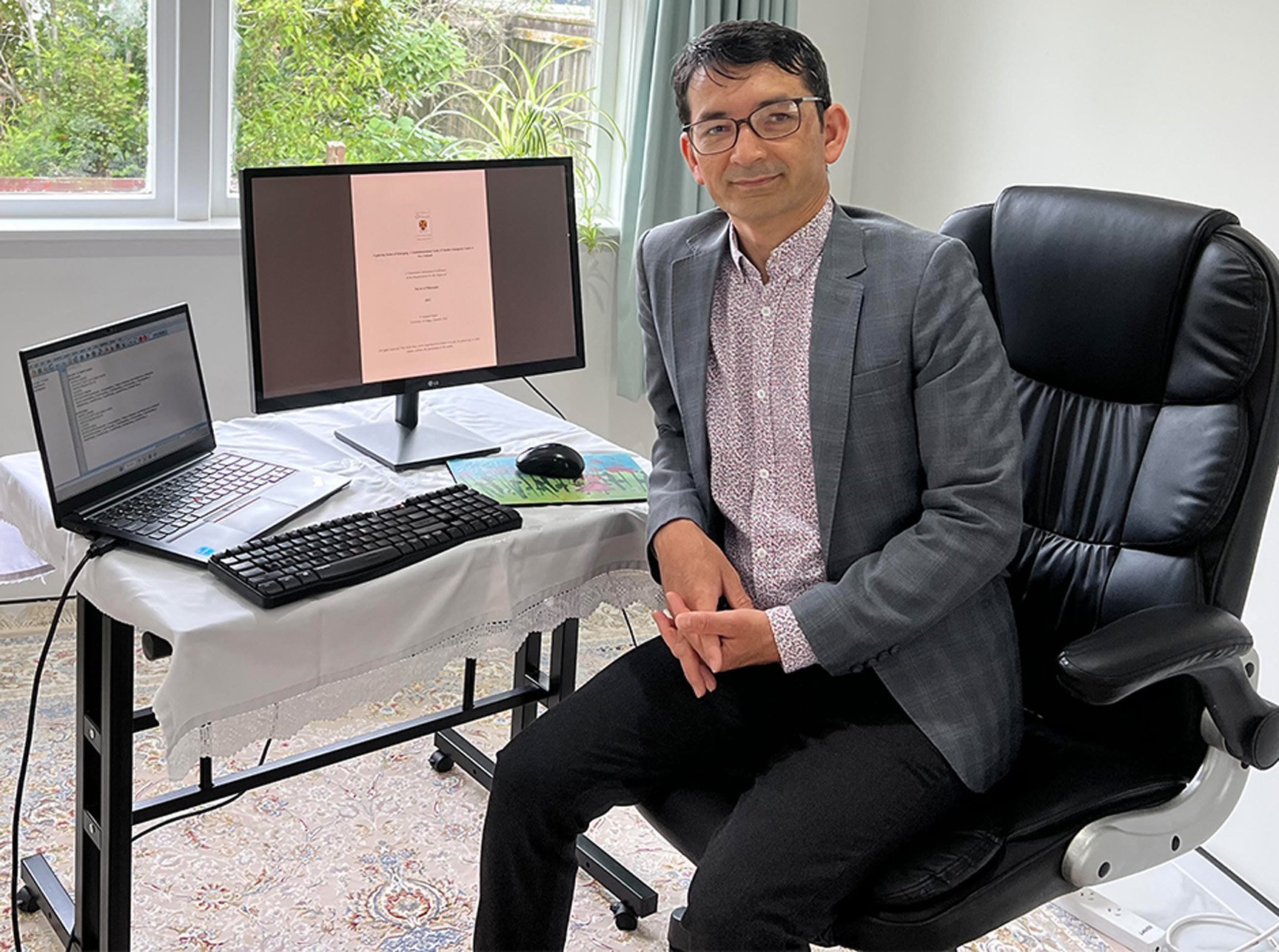
But new research by a recent University of Otago PhD graduate is challenging the widely accepted idea that the two identities cannot harmoniously coexist.
Afghan refugee Dr Hussain Raissi recently graduated from the University of Otago with research which drew from his own experiences.
He previously worked as a cultural mediator in Abu-Dhabi with Nato forces; and from November 2016 until February 2019 he worked with different organisations and associations to assist Afghan and Iranian refugees and asylum seekers in their processes of integration and settlement into French society.
While working with refugees in France, he saw firsthand how difficult it could be for young Muslims to negotiate fitting into their new surroundings and holding on to their religious and cultural identity.
Dr Raissi moved to New Zealand in April 2019 to start his PhD through the University of Otago’s National Centre for Peace and Conflict Studies.
During that time, he noticed similarities and differences between how France and New Zealand related to Muslim refugees.
"In both France and New Zealand, things like religiosity and discrimination play a big part in shaping how Muslim youth feel about where they belong.
"But what stood out to me in New Zealand was that there seemed to be more support from the community, and the country itself tends to promote diversity and multiculturalism more than France, where the focus is often on assimilation."
Dr Raissi examined the experiences of young Muslim refugees in New Zealand, using a mixed methods approach to collect information for his thesis, titled Exploring Senses of Belonging: A Multidimensional Study of Muslim Immigrant Youth in New Zealand.
He surveyed 258 Muslim immigrants, aged between 16 and 29, and interviewed 20 of the group, all from major urban areas of New Zealand.
When discussing the adaptation of immigrants and newcomers, especially in academia and policy-making, the focus often lay on tangible aspects such as housing, employment, health and education, while the subjective aspect of adaptation — particularly the sense of belonging — was frequently overlooked.
Dr Raissi said the sense of belonging and feeling welcome in a new country was "crucial".
"These individuals often navigate the delicate balance between their Islamic faith and the cultural norms of their new environment, which is vital for their personal growth and integration."
A strong sense of belonging significantly enhanced life satisfaction and psychological wellbeing by fostering resilience and adaptability, he said.
"All of these things enable this group to navigate cultural dualities and counteract discrimination."
When they were made to feel welcome, it promoted social integrations and provided greater education and employment opportunities, both of which were crucial for social and economic participation, he said.
This engagement helped youth develop their skills, boost self-esteem and foster a feeling of belonging.
"Cultural diversity enriches the social fabric of the country and brings different perspectives, ideas and innovations that benefit society as a whole."
However, when immigrants were not made to feel welcome, it could lead to a sense of isolation, marginalisation and health issues such as anxiety and depression, he said.
"For young people, it can cause identity confusion and lead to coping mechanisms like dissimulation, where they conceal their true identity to fit in, resulting in long-term emotional strain and a loss of cultural roots.
"Ultimately, this could lead to social fragmentation, a weakening of social cohesion, social unrest and conflict."
In an ideal society, fostering a sense of belonging should be a collaborative effort between immigrants and the wider society.
"Ultimately, the responsibility for fostering a welcoming and inclusive society lies with both immigrants and the wider community.
"It requires mutual effort, understanding, and respect to create a harmonious and thriving multicultural society."












